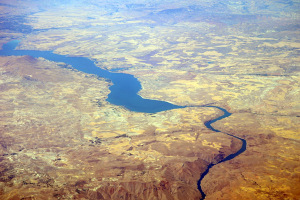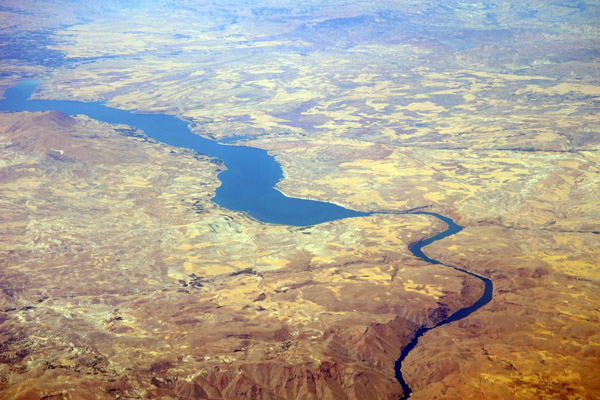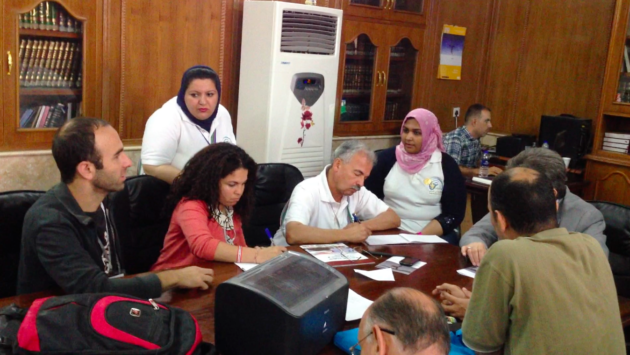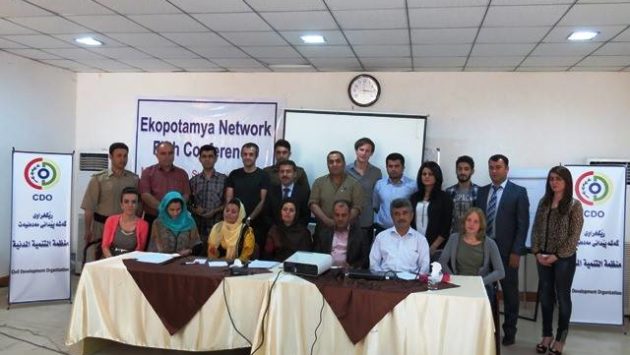The Euphrates in Crisis: Channels of Cooperation for a Threatened River
The Euphrates’ existing resource security challenges have been compounded by upheaval in Syria and Iraq. Without urgent attention, stresses on the river’s resources will add to the catastrophic humanitarian crisis created by the conflict.
The Euphrates River is of critical importance for water, food and energy security in Turkey, Syria and Iraq. Flowing south-east for 2,700 kilometres from eastern Turkey to the Persian Gulf, it supports over 60 million people and – along with the Tigris, with which it runs almost in parallel – has a rich history of sustaining civilization on the Mesopotamian plains.

This vast water resource is in crisis. Degradation of the river from over-exploitation, population growth, pollution and other factors has been a serious problem for many years. Now war and violent upheaval in Syria and Iraq are worsening the situation: threatening key infrastructure and preventing policy cooperation. Without urgent attention, stresses on the river’s resources will add to the already catastrophic humanitarian crisis created by the conflict. In the longer term, a vision for cross-border coordination is essential if the river is to retain its vital role in the region.
A troubled history of water relations
This paper argues that the challenges facing the Euphrates cannot be met by one state acting alone. Indeed, the history of poor interstate coordination over the river is precisely one of the factors that have allowed the deterioration in its condition to occur. Despite almost a century of formal negotiations, agreement has been limited. Negotiations have been characterized by mistrust, poor communication and a lack of reliable, common data.
What can be done? This paper makes a number of recommendations based on short- and long-term goals. Given the security situation in Syria and Iraq, the severing of relations between Turkey and Syria, and the spread of ISIS’s influence, resuming interstate talks over the river is unthinkable at present. However, building a common vision among concerned experts to prepare the ground for eventual cooperation should not be. Moreover, despite their limitations, bilateral protocols established between Turkey and Iraq, and between Turkey and Syria, between 2008 and 2010 – and emerging international river-basin cooperation experience – could provide the basis for a more constructive approach.
Building a common vision for cooperation
In the near term, opportunities for ad hoc interstate coordination on temporary measures to address urgent human needs should be seized. Independently of this, a working group of experts both inside and outside the riparian states could be set up to monitor events affecting the integrity of the river. This working group could advise responsible authorities and humanitarian agencies on issues such as water supply, sanitation failures or sudden releases of water from dams.
When political conditions improve, a more formal river committee should be established. Such a body would assemble a variety of interested parties, researchers and policy-makers with an evolving mandate that would both build trust and lead to increased management capacity for all riparians.
The priorities for the committee’s work could include:
- Building databases of all existing water-related agreements and disputes and pooling all available information on the river’s hydrology and meteorology in each state.
- Defining the respective water needs and projected demands of each state, with a focus on identifying target areas for improving efficiency.
- Developing a durable agreement on water sharing. Rather than focusing on a division of flow, this could focus more on roles, joint responsibilities and specific processes for defusing tensions and resolving disputes.
- Building an early-warning system for the prediction of severe climate incidents in the Euphrates basin, to enable preparation against famine and flooding.
- Promoting regional cross-investment in the GAP, helping to alleviate the concerns of stakeholders in Syria and Iraq.
- Fostering wider economic interdependence between states, which could involve the export of oil and gas supplies from Iraq in return for hydroelectric power from Turkey, and food trade between all three countries.
- Reviewing legislation on water use and management in the three riparian states, in order to standardize regulations and best practice. Given the limitations on enforcing rulings in all three countries, pragmatism may dictate that such efforts be guided more by the principle, rather than the letter, of international law.



